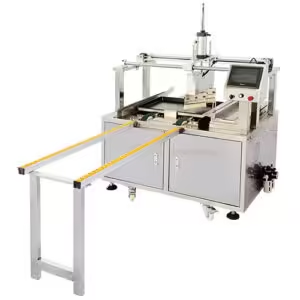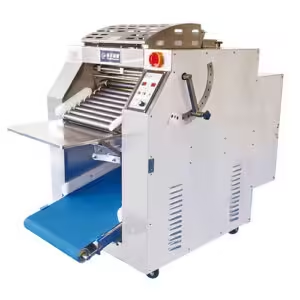



In today’s fast-paced food industry, production efficiency determines profitability and competitiveness. A durable food processing machine plays a key role in maintaining consistent output, ensuring food safety, and meeting growing consumer expectations.
By investing in robust machinery, businesses can minimize downtime, lower maintenance costs, and deliver superior product quality. In this article, we will explore how a reliable food processing machine can revolutionize your operations, helping you stay ahead in a challenging market.
Durability in a food processing machine depends on multiple critical factors. Understanding these elements helps businesses make informed purchasing decisions.
Using stainless steel, food-grade plastics, and corrosion-resistant parts is essential. These materials ensure the food processing machine can withstand harsh processing environments and intensive cleaning protocols.
An intelligently designed food processing machine reduces wear and tear, simplifies maintenance, and supports various food types without major adjustments.
Top manufacturers follow strict quality assurance processes. Each food processing machine undergoes comprehensive testing to ensure reliability and adherence to food safety regulations.
A durable processing food machine offers easy access for repairs, modular components, and intuitive operation systems, dramatically reducing downtime when servicing is required.
Minimizing breakdowns directly boosts productivity. A well-maintained processing food machine enables steady production flows, meeting customer demands promptly.
Fewer breakdowns mean lower repair expenses over the machine’s lifespan, allowing businesses to allocate budget resources more effectively.
Reliable machinery ensures that every batch maintains the same high standards, crucial for customer satisfaction and regulatory compliance.
Modern processing food machine integrate advanced safety features, protecting workers and maintaining smooth, incident-free operations.
New-generation processing food machine are engineered to consume less water and energy, supporting businesses in achieving eco-friendly goals.
Investing wisely in machinery can define a company’s long-term success. Here’s how to choose the best processing food machine:
Select a processing food machine that can handle your current production volumes, with capacity for future expansion as needed.
Compatibility with specific food types—meat, dairy, vegetables, bakery items—is critical. Specialized machines may be necessary for particular textures or processing needs.
Choose equipment that meets international safety and food-grade standards like ISO, CE, and FDA certifications to ensure operational legality and consumer trust.
Look for easy-to-clean designs with smooth surfaces, rounded edges, and CIP (Clean In Place) systems to ensure superior hygiene.
Comprehensive warranties, 24/7 customer service, and readily available spare parts can significantly enhance the operational lifespan of a processing food machine.
The following table highlights essential differences to consider:
| Feature | High-Quality Food Processing Machine | Average Food Processing Machine |
|---|---|---|
| Material | Stainless steel, food-grade plastics | Mixed metals, basic plastics |
| Sanitation Design | Easy to clean, CIP-compatible | Hard to sanitize |
| Durability | 10+ years lifespan | Frequent repairs after 3–5 years |
| Energy Efficiency | High energy and water efficiency | Moderate to low efficiency |
| Safety Features | Advanced interlocks, auto-shutdown | Basic protections only |
| After-Sales Support | 24/7 support, quick spare parts | Limited or delayed assistance |
Choosing a robust machine ensures a greater return on investment and a smoother production cycle.
Durable processing food machine are designed with adjustable settings to manage inconsistencies in food texture, size, and moisture, minimizing the need for manual intervention.
Food safety is non-negotiable. Advanced machines with seamless construction and automated cleaning systems simplify compliance with strict sanitation laws.
Automation through a processing food machine helps reduce dependency on manual labor, making operations more efficient and cost-effective.
Eco-friendly models focus on energy conservation, recycling possibilities, and lower water consumption, aiding businesses in reducing their carbon footprint.
Operational interruptions cost more than missed production:
Minimizing downtime through a robust processing food machine protects your profits and preserves brand value.
The future promises exciting advancements:
Investing in forward-thinking processing food machine solutions positions your business for growth and resilience in an evolving industry.
Choosing a high-quality food processing machine is not just about equipment—it’s about securing operational efficiency, meeting market demands, and building a resilient brand.
By investing in machinery that minimizes downtime, enhances sustainability, and maintains product consistency, businesses can significantly boost their market position. Now is the time to upgrade and invest wisely for a stronger, more efficient future.
Ready to transform your production line? Contact us today to find the perfect food processing machine tailored to your needs!
What defines a durable food processing machine?
Durability is measured by material quality, engineering precision, compliance with food-grade standards, and low maintenance requirements.
How often should maintenance be performed on a food processing machine?
Preventive maintenance is usually recommended every 6 to 12 months, depending on machine type and operating conditions.
Can a food processing machine process different types of food?
Many modern machines are highly versatile, capable of handling a range of food products, from meats to confectionery, with appropriate settings.
Are there sustainable food processing machine options available?
Yes, manufacturers increasingly offer models built with eco-friendly practices, focusing on reduced energy consumption and recyclable materials.
Why is investing in a high-quality food processing machine crucial?
A premium machine ensures better product quality, reduced operational costs, improved workplace safety, and greater long-term profitability.

